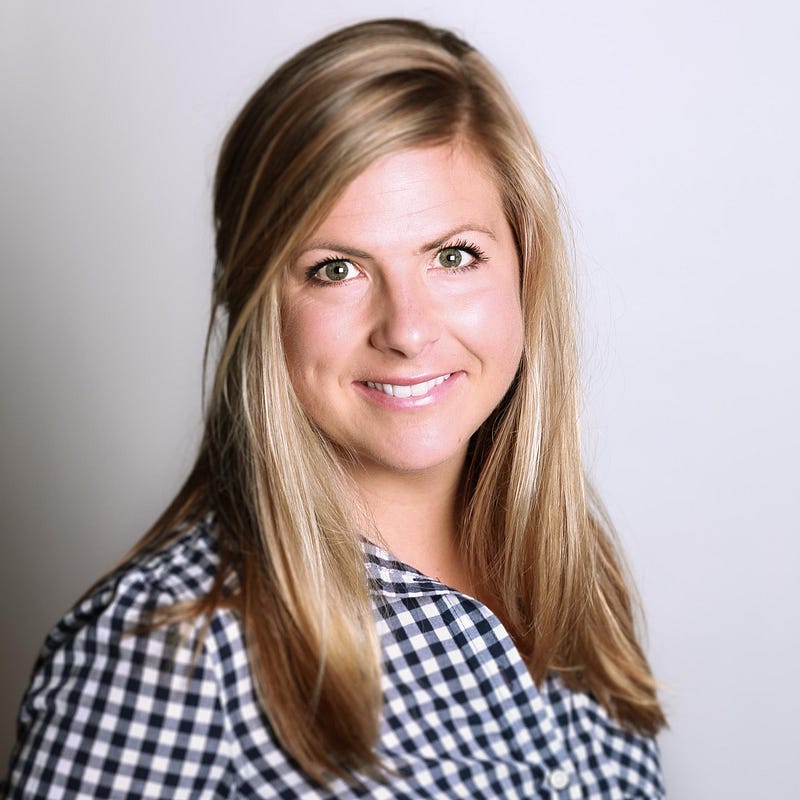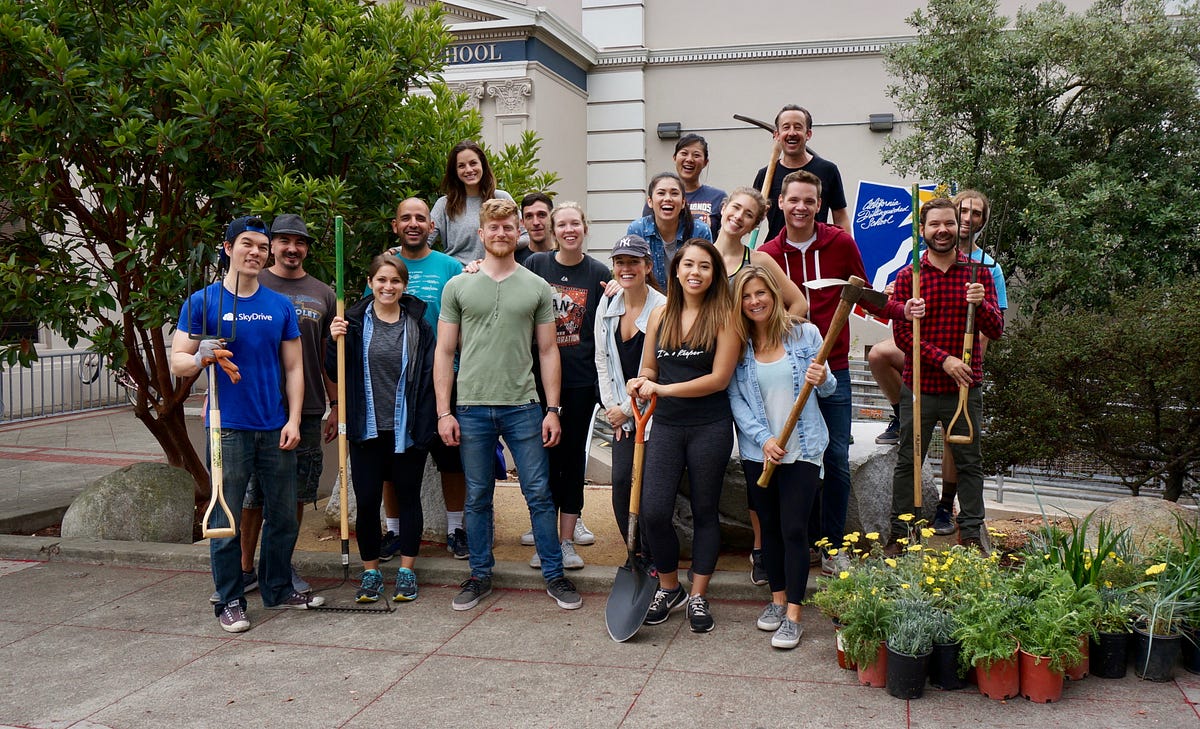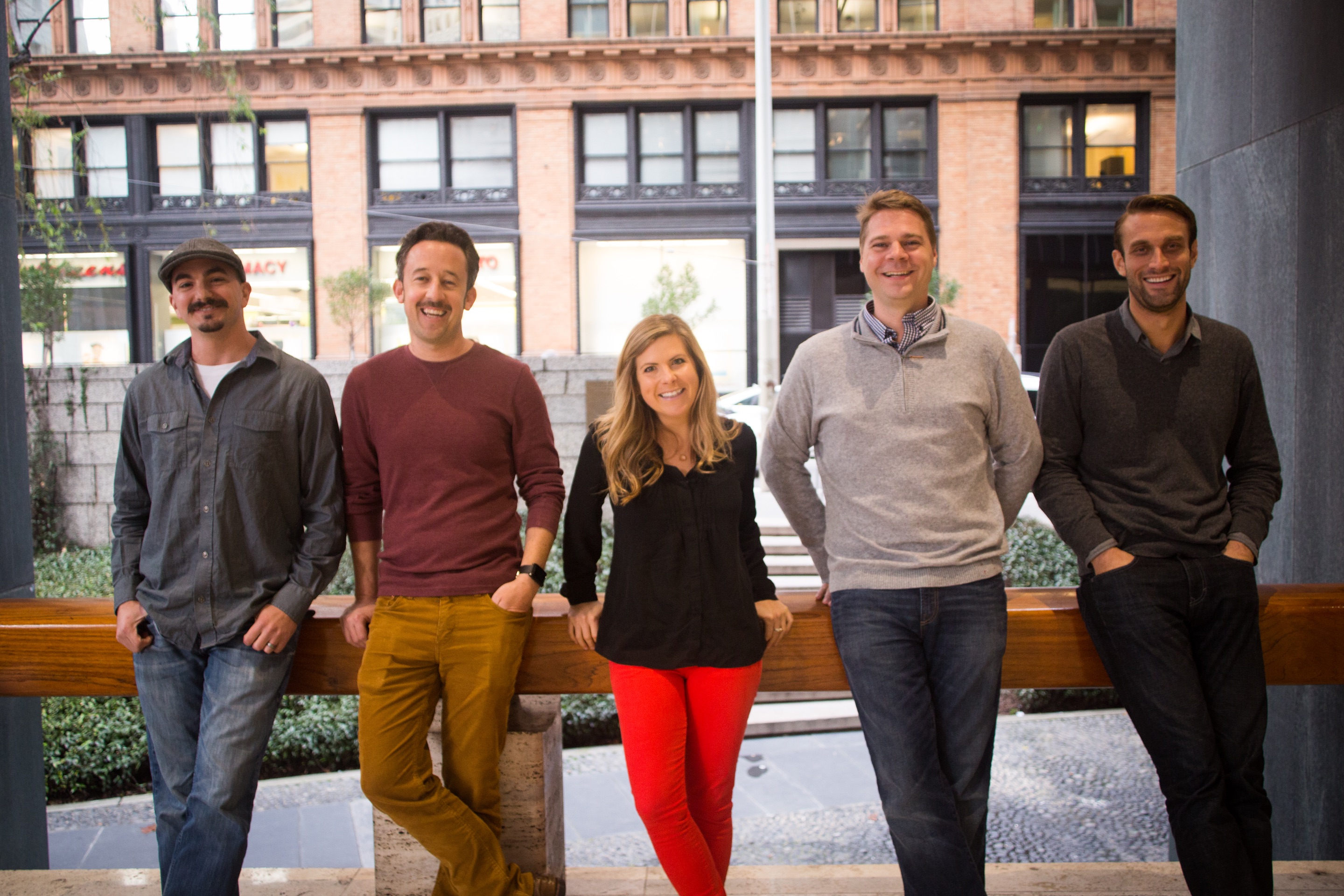The delegate/elevate exercise is one I put myself through every year or so. Here’s how it works: You draw a big square with four quadrants. In the top left input the things you love to do and are amazing at. In the top right go the things you like and are good at. Bottom left — things you don’t like but are decent at. Bottom right — things you hate and are terrible at. Filling out the every quadrant will show you clearly where you should focus and what you really want. More importantly, it will reveal what you need to delegate or hire for so you even can focus on what you love and do best. Taking action on what your delegate/elevate square reveals moves you ever closer to that. The end goal is to focus only on the items in the “Love” box.
When we work on being mindful, we begin to see there are opportunities every day, all day long, to take a moment out to pause, get present and refocus on or task at hand.
As a part of my series about “How to Slow Down To Do More” I had the pleasure to interview Katie Horgan. Katie is Co-Founder and V.P. of Business Development at Giving Assistant a Certified B Corp and shopping rewards platform. She is an experienced, creative, and bold entrepreneur whose tenacious spirit and dependable instincts help startups and small businesses get things done and exceed their goals across all critical areas, from business development and marketing, to technology and operations. Her main fuel sources: amazing food, a great workout, and practicing holistic wellbeing.
Thank you so much for joining us! Can you tell us the “backstory” about what brought you to this specific career path?
A good mix of fate and determination. I started my career working as the jane-of-all-trades for a small television production that aired on PBS. We were funded by a nonprofit who failed to produce the monies for our season 3… however, we didn’t know it until after production wrapped. That’s when I become attracted to startups who were leveraging new technologies to fundraise — companies like crowdrise, indigogo and causes.com. This funding method was gaining in popularity. Aligning with my personal interest to leave a lasting, positive impact on the world, I took the leap of faith into tech. I went to work for a charitable fundraising company called GlobalMojo as their first employee and digital marketing manager… and the rest is history.
According to a 2006 Pew Research Report report, 26% of women and 21% of men feel that they are “always rushed”. Has it always been this way? Can you give a few reasons regarding what you think causes this prevalent feeling of being rushed?
Personally, I struggle with this. Our society and culture values action — “doing = achieving”. I’ve felt this strongly, deep within for most of my life. I live with an internal dialog — a little voice, pushing me forward — to always do… perform… improve. This has resulted in an incredible work ethic that has helped me achieve great things. And that’s not all bad. But it is hard to turn off or delegate when you associate your value with your high level of output. So making changes to reduce the rush-rush-rush in my life is not always easy. It’s not simply needing “better time management” or other outside solutions — it’s an internal shift that must take place.
Based on your experience or research can you explain why being rushed can harm our productivity, health, and happiness?
Mistakes and miscommunications are two clear side effects of rushing around. Not taking time to think things through is very inefficient and can result in unintentional disrespect. Along with the frustration it creates for all parties, rushing around results in not having time to focus on others. Showing up late, interrupting because you’re rushed, dipping out early — these actions send the signal that their time time isn’t as valuable as yours. That, somehow, they aren’t as important as you. It disrupts harmony and creates issues that should never occur in the first place but later you have to unwind.
I learned this the hard way and hope to help others avoid the painful lesson. Now I always keep this thought in the back of my head before committing to plans: Can I fulfill what they need on time and with excellence? Whether at work or in your personal life, it’s better to say no up front than to overcommit and disappoint the other person.
In terms of health, I could talk about this for a while. I’ve paid the physical price of rushing and stress. I’ve ended up in the ER from the effects of ongoing stress. I live with the lasting side effects of long-term chronic stress. Rushing around leads to stress. Stress triggers hormone responses in your brain that affect everything from your happiness to your digestion.
On the flip side, can you give examples of how we can do more, and how our lives would improve if we could slow down?
What we’re really talking about here is FOCUS. When you slow down, you have the mental clarity to strategically think through whatever challenge you face. You have the capacity to create — and execute — a viable solution.. For example, perhaps task X is taking 60% of your time but producing little results. Take the time figure out how to outsource or minimize your personal time investment. This will free you to tackle the needle-moving initiatives that truly require your attention.

We all live in a world with many deadlines and incessant demands for our time and attention. That inevitably makes us feel rushed. Can you share with our readers 6 strategies that you use to “slow down to do more”? Can you please give a story or example for each?
- Distance from the office. I put literal distance between my work and my personal life when I started working remotely. Distance from the office and the “weeds”, both figuratively AND literally, helped me slow down and focus. Now I’m adding measurably more value to my company. I have time to think! To put things into motion instead of just being in motion. I also try to take time off every 6 months to regroup and rejuvenate.
- Calendar EVERYTHING. Literally. For better or worse, everything in my life is calendared, even my down time. I schedule my workouts, my time to sleep in, time to meet up with friends, even my chill time. I block off large chunks of time to tackle big issues at work. Without this structured time, things rapidly get out of hand, big things crowd out small things. Small things cut into personal time. It never ends. So I use my calendar to maintain control. I even have a salmon colored iCal calendar called “fun time”. This came out of a New Year’s resolution a few years ago when I absolutely had to find a better way. I was starting to burn out. Consistency with this exercise helped me put time boundaries. I’ve continued it because I find it really effective.
- My mornings are for me. I’m an early bird so I workout first thing. Then, I enjoy reading news (I love theSkimm) while sipping a yummy something. I keep my mind off work. After I’m refreshed and have had “me” time, I’m ready to give to what is needed of me throughout the day. I’m more focused, more effective. Whenever works for you, you absolutely need to have that time to rejuvenate yourself.
- No phone/laptop in the bedroom. Currently, I do a short yoga flow before bed every night to help unwind and calm my mind. My phone and laptop are forbidden in my bedroom. This keeps work out of my sacred space. It prevents work from being the first thing I see in the morning and the last thing at night. It helps keep work from dominating my thoughts and my life.
- Communicate on/off hours. This is especially helpful (and necessary) when I’m remote, away from my team. I let them know very clearly my working hours and that I’ll answer any questions the next day. When you fail to follow this principle, work and the important (but interruptive) needs of others will overshadow all else. You can’t escape that stress without clear boundaries on your working hours.
- Delegate to elevate. The delegate/elevate exercise is one I put myself through every year or so. Here’s how it works: You draw a big square with four quadrants. In the top left input the things you love to do and are amazing at. In the top right go the things you like and are good at. Bottom left — things you don’t like but are decent at. Bottom right — things you hate and are terrible at. Filling out the every quadrant will show you clearly where you should focus and what you really want. More importantly, it will reveal what you need to delegate or hire for so you even can focus on what you love and do best. Taking action on what your delegate/elevate square reveals moves you ever closer to that. The end goal is to focus only on the items in the “Love” box.
- Say no. Say ‘no’ to some good things so you can say ‘yes’ to even better ones.
How do you define “mindfulness”? Can you give an example or story?
Mindfulness is being present. It’s having an awareness of your surroundings as well as yourself — the physical body, emotional feelings, all the sensations. Acknowledging what’s pulling on you. What’s draining you. What’s energizing you. And maintaining a calm, focused mind throughout it all. In addition to yourself, it’s tuning into others. Recognizing their needs and feelings and responding appropriately. When you are pulled in too many directions, through rushing and stress, you are robbed of mindfulness. But making changes to the things that are moving you away from your excellence, as well as reframing your self-talk about your worth can reset mindfulness.
Can you give examples of how people can integrate mindfulness into their everyday lives?
There are so many ways! Put your phone down, look someone in the eye and smile. Take just a moment, at the beginning or end of every day — and multiple times throughout the day (whenever you’re overwhelmed by life’s demands), to think of one thing you are grateful for. Share that gratitude with others. Take up yoga. Take your dog of a walk and reflect. Try meditation. (I think the Koru App is great.)
Do you have any mindfulness tools that you find most helpful at work?
I’m not sure I would call it a tool but more of a way of thinking, which to me, is mindfulness. As I mentioned before, I learned rushing and stress lessons the hard way. These days, I’m mindful of my own commitments and the needs and expectations of others when presented with a request. I take the time to evaluate my capacity to fulfill the request with excellence and on time. I ask myself, “Am I serving this person better by saying yes or no?” Sometimes, the absolute best answer is no. I’m actually being more mindful and caring about their goals and needs by not taking on something I honestly shouldn’t. Surrendering the need to be needed and their “go-to girl” is sometimes difficult but is the best way to truly help them.
What are your favorite books, podcasts, or resources that inspire you to use mindfulness tools or practices?
- Yoga app — Pocket Yoga
- Meditation apps — Koru, Headspace
- Classpass — I use this to find yoga and meditation classes, both at home and when I travel.
- Tim Ferriss Podcast — I love hearing from the world class performers on the podcast. I often learn a tip or trick on how to optimize my life.

Can you please give us your favorite “Life Lesson Quote”? Can you share how that was relevant to you in your life?
Tough times don’t last but tough people do. You are one tough cookie. — my dad
I love the quote. It’s stuck and become a part of me. From a note my dad sent me in one of those 24 hour dance marathons when I was in college many, many years ago, it’s gives me courage… It’s so real. There will always be tough times and it keeps me going during those times. I take strength in knowing they won’t last. Having a positive outlook makes all the difference in life.
You are a person of great influence. If you could inspire a movement that would bring the most amount of good to the most amount of people, what would that be? You never know what your idea can trigger. 🙂
I believe all people are inherently good. I believe all people have something positive to contribute. I wish we’d all just take a second to appreciate the incredible opportunity we have here on this earth. Smile. Help a neighbor. Give back in any way you can. You never know when you might need that helping hand in return. Contribute your good and provide others the opportunity to contribute theirs.
Thank you so much for these insights! This was so inspiring!
About the Author:
After 15 years working in Commercial Real Estate in New York City, Ashley Graber changed the coast she lived on and the direction of her life from Real Estate to the worlds of Psychology and Meditation & Mindfulness. Ashley came to these practices after getting sober and in the decade plus since, she now runs a busy mindfulness based psychotherapy practice at Yale Street Therapy in Santa Monica, CA where she see adults and children and speaks on the benefits of meditation and mindfulness practices.
Ashley is an Owner and Director of Curriculum for the next generation meditation app & mindfulness company ‘Evenflow’ and launched the company’s one to one online mindfulness mentoring program. Ashley also educates teachers and administrators in schools and presents in businesses across Santa Monica and Los Angeles.
Ashley was trained in Meditation and Mindfulness practices by prominent teachers; Elisha Goldstein, Richard Burr and Guiding teacher at Against the Stream Boston, Chris Crotty. Her Mindfulness Based Stress Reduction (MBSR) certification was done through The Center for Mindfulness at UC San Diego. Additionally, Ashley is trained by Mindful Schools to teach Meditation and Mindfulness practices to children and families. Ashley’s unique combination of psychotherapy, trauma reprocessing and meditation and mindfulness practices make her a sought after therapist and mindfulness educator and speaker. Her passion for the benefits of mindfulness practices as well as her enthusiasm for helping young kids and adults is the drive to teach these very necessary, life long skills and why she wrote and runs the Mindfulness for Families program at The Center for Mindful Living. This is where she teaches groups of families with children ages 6–12.
Ashley was featured on Good Morning LaLa Land, presented on Resilience at the renowned Wisdom. 2.0 Mindfulness & Technology conference, and presented at the TED Woman conference offering an in-depth look at the profound psychological and physiological consequences of chronic stress, and how meditation and mindfulness practices can alleviate these effects.
If you’d like to book Ashley for an inspiring speaking engagement, please click here.


